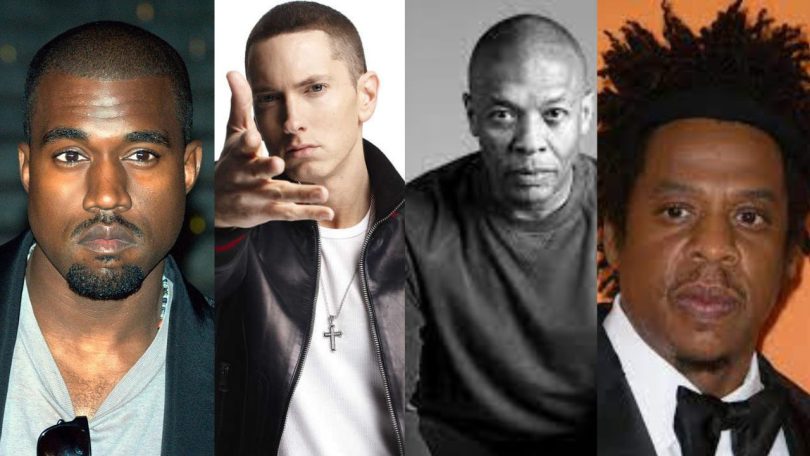When it comes to music genres, hip hop and rap are often used interchangeably. However, they are not the same thing. Hip hop is a broader culture that includes various elements such as fashion, dance, art, and lifestyle. On the other hand, rap is a specific style of vocal delivery that is often associated with hip hop music. One of the key differences between hip hop vs rap is that hip hop is a culture, while rap is a genre of music.
Hip hop encompasses various elements such as dance, fashion, and art, which are all part of the lifestyle. Rap, on the other hand, is a specific style of vocal delivery that is often used in hip hop music. While all rap is hip hop, not all hip hop necessarily includes rap.
Another difference between hip hop vs rap is the focus of the music. Hip hop music often addresses various social and political issues, while rap music tends to focus more on personal experiences and emotions. While both genres may use similar beats and rhythms, the lyrical content and overall tone of the music can be quite different.
Origins and Historical Context
Birth of Hip Hop
Hip hop is a cultural movement that emerged in the late 1970s in the Bronx, New York City. It was created by African American and Latino youth as a way to express themselves and their experiences through music, dance, art, and fashion. The term “hip hop” was coined by DJ Afrika Bambaataa, who used it to describe the culture and its elements.
Hip hop music is distinguished by its utilization of sampling, scratching, and beatboxing. The Sugarhill Gang’s “Rapper’s Delight,” released in 1979, was the first hip hop song to achieve widespread acclaim. Other pioneers of early hip hop include Grandmaster Flash and the Furious Five, Run-DMC, and LL Cool J.
Evolution of Rap
Rap is a musical style that evolved from hip hop. It is characterized by its use of spoken rhyming lyrics, often accompanied by a beat. The first rap song is widely considered to be “King Tim III (Personality Jock)” by the Fatback Band, released in 1979.
Rap gained mainstream popularity in the 1980s and 1990s, with artists such as Public Enemy, N.W.A, and Tupac Shakur. The genre has continued to evolve, with sub-genres such as gangsta rap, conscious rap, and mumble rap.
Rap has been criticized for its often explicit lyrics and glorification of violence and drug use. However, it has also been praised for its ability to give a voice to marginalized communities and address social and political issues.
Overall, hip hop and rap have had a significant impact on popular culture and music. They continue to evolve and influence new generations of artists and fans.
Musical Elements
When it comes to hip hop vs rap, the musical elements are one of the key differences between the two genres. Hip hop is a music style that encompasses several musical elements, including beat, rhythm, and lyricism. On the other hand, rap is a style of music that is primarily focused on the lyrics.
Beat and Rhythm in Hip Hop
Hip hop is characterized by its distinctive beats and rhythms. The beat is the foundation of hip hop music, and it is usually created using a drum machine or sampler. The rhythm of hip hop is often syncopated, which means that it emphasizes the off-beat. This creates a unique and infectious groove that is instantly recognizable.
Hip hop beats are typically composed of several layers of sounds, including drums, basslines, and melodies. These elements are often sampled from other songs or recordings and manipulated to create a new sound. The use of samples is a key part of hip hop culture, and it has been a driving force behind many of the genre’s most iconic songs.
Lyricism in Rap
While hip hop focuses on the musical elements, rap is all about the lyrics. Rap lyrics are often characterized by their clever wordplay, intricate rhyme schemes, and storytelling. The lyrics in rap songs can cover a wide range of topics, from social issues to personal experiences and everything in between.
One of the defining features of rap lyrics is the use of metaphors and similes. These literary devices are used to create vivid imagery and convey complex ideas in a concise and memorable way. Another important aspect of rap lyrics is the use of flow. Flow refers to the way that the rapper delivers their lyrics, including their rhythm, timing, and cadence.
In conclusion, hip hop and rap are two distinct genres of music with different musical elements. Hip hop is characterized by its beats and rhythms, while rap is focused on the lyrics. Understanding these differences is essential for anyone who wants to appreciate and enjoy these genres of music.
Cultural Significance
Hip-hop and rap have had a significant impact on society and culture, both in the United States and around the world. This section will explore the cultural significance of hip-hop and rap, including their impact on society and how they have served as a voice for marginalized communities.
Hip Hop and Society
Hip-hop has been a powerful cultural force since its emergence in the 1970s. It has influenced fashion, language, and music across the globe. Hip-hop has also served as a platform for social and political commentary, with many artists using their music to address issues such as poverty, racism, and police brutality.
Hip-hop’s influence on society is particularly evident in its impact on youth culture. Hip-hop has provided a voice for young people, especially those from marginalized communities, to express themselves and their experiences. It has also created opportunities for young people to pursue careers in music, fashion, and other creative industries.
Rap as a Voice
Rap, as a subgenre of hip-hop, has been particularly influential in giving voice to marginalized communities. Many rap artists use their music to tell stories of struggle and triumph, addressing issues such as poverty, racism, and police brutality. Rap has also been used as a tool for political activism, with artists using their music to advocate for social change.
Rap has also been a powerful tool for self-expression and empowerment. Many rap artists use their music to express their personal experiences and perspectives, providing a voice for those who have been silenced or marginalized. Rap has also created opportunities for artists to build careers and achieve financial independence, particularly for those from low-income backgrounds.
In conclusion, hip-hop and rap have had a significant cultural impact, providing a voice for marginalized communities and addressing important social and political issues. Their influence on society is evident in their impact on fashion, language, and music, as well as their role in shaping youth culture.
Commercial Success
Hip hop and rap have both seen significant commercial success over the years. Mainstream media has played a big role in promoting hip hop and rap artists, leading to increased exposure and popularity.
Hip Hop in Mainstream Media
Hip hop has become a staple in mainstream media, with its influence extending beyond just music. Hip hop fashion, dance, and even language have all had an impact on popular culture. The genre has also seen success in film and television, with hip hop artists often appearing in movies and TV shows. The rise of social media has also allowed hip hop artists to connect with fans and promote their music in new ways.
Rap’s Impact on Music Industry
Rap has had a significant impact on the music industry, with many of the most successful artists in recent years coming from the rap genre. The rise of streaming services has made it easier for rap artists to reach a wider audience and achieve commercial success. Rap has also influenced other genres of music, with many pop and R&B artists incorporating rap elements into their music.
Despite its success, rap has also faced criticism for its lyrics and portrayal of violence and drugs. Some argue that rap promotes negative stereotypes and glorifies criminal behavior. However, others argue that rap is a reflection of the realities faced by many in marginalized communities and provides a platform for their voices to be heard.
Overall, hip hop and rap have both seen significant commercial success and have had a major impact on popular culture and the music industry.
Controversies and Criticisms
Hip hop and rap music have been the subject of criticism and controversy since their inception. While some of the criticisms are valid, others are based on stereotypes and misconceptions. In this section, we will explore some of the controversies and criticisms surrounding hip hop and rap music.
Hip Hop and Stereotypes
Critics have denounced hip hop for perpetuating detrimental stereotypes about black culture, such as promoting materialism, violence, and misogyny. Opponents contend that hip hop music fosters a culture of crime and violence, as numerous lyrics depict drug dealing, gang involvement, and other criminal conduct.
It is crucial to recognize that hip hop is not a homogeneous entity, and there exist several sub-genres within the broader hip hop culture. Certain artists employ their music to tackle social issues and disseminate constructive messages, such as Kendrick Lamar, J. Cole, and Chance the Rapper. Additionally, it is noteworthy that hip hop has played a pivotal role in empowering marginalized communities and serving as a platform for political and social activism.
Rap and Violence
Rap music has also been criticized for promoting violence, particularly towards women. Many rap songs contain lyrics that are derogatory towards women, and some have been accused of promoting rape culture. Additionally, some rap songs glorify gun violence and drug use.
It is crucial to acknowledge that not all rap music advocates violence. Several rappers employ their music to tackle social issues and spread constructive messages, such as Nas, Tupac, and Common. Additionally, it is essential to understand that rap music mirrors the society in which it originated. The violence and misogyny portrayed in some rap songs frequently reflect the harsh realities of life in inner-city America.
In conclusion, while hip hop and rap music have been the subject of criticism and controversy, it is important to recognize that they are complex and multifaceted art forms. While some of the criticisms are valid, it is important not to generalize or stereotype all hip hop and rap music as promoting negative messages.
Conclusion
In summary, while hip hop vs rap are often used interchangeably, they are not the same thing. Hip hop is a culture that encompasses various elements, including rap, DJing, breakdancing, and graffiti. On the other hand, rap is a musical genre that emerged from hip hop culture and is characterized by rhythmic music and rhyming lyrics.
Some key differences between hip hop vs rap include:
- Hip hop is a culture, while rap is a musical genre.
- All rap is hip hop, but not all hip hop is rap.
- Hip hop includes various elements, while rap focuses on music.
- Hip hop has a broader societal impact, while rap primarily affects the music industry.
It is important to note that both hip hop and rap have played significant roles in shaping music and culture over the past few decades. From the early days of Sugarhill Gang and Kurtis Blow to the modern era of Kendrick Lamar and Cardi B, hip hop and rap continue to evolve and push boundaries.
Whether you are a fan of hip hop, rap, or both, it is important to understand the differences between these two terms. By doing so, you can gain a deeper appreciation for the rich culture and history of hip hop and rap music.







